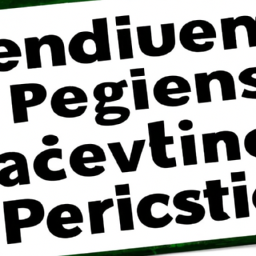Preserving Public Interests and Rights: The Urgent Call for Proactive Government Systems
Introduction: Governments often appear to be inconsistent in their approach to new technologies. While they assume that capabilities and practices available to prior technologies should remain accessible to them, they do not show the same concern for preserving public benefits or rights associated with the technologies being replaced. This selective behavior highlights a tendency to relitigate lost battles and raises questions about governments’ commitment to upholding public interests and rights.

Preserving the Spirit of the Law: When governments create laws, such as wiretapping regulations, the spirit of the law is clearly defined at the time of its creation. It is expected that this spirit will be upheld by the courts when interpreting the law to suit cases beyond its original scope. However, the challenge arises when it comes to “legacy” common law, such as the ability to transact anonymously using cash. These laws lack a clear institutional memory of the original intent, making it difficult to determine whether anonymity is a necessary component that should be preserved in replacement systems or simply an implementation detail based on the technology at the time.
The Importance of Contextual Documents: Understanding the context and intent of laws is crucial, which is why documents like the Federalist Papers hold immense significance. Unfortunately, the public discourse often lacks awareness of these important contextual documents, leading to discussions and decisions that overlook vital information. This knowledge gap highlights a missing function in government — the need for a proactive approach to understand and protect public interests.
The Need for Proactive Government Systems: Governments must address this problem by establishing a system that proactively responds to latent public sentiment and enshrines it within constitutional amendments. Such a system could involve a government department responsible for embedded journalism to identify emerging issues without established legal bases. Referendum-like polls would then gauge public sentiment, and if a need is indicated, a constitutional amendment would be drafted in collaboration with the legislature and the Supreme Court. The amendment’s ratification would be decided by a federal grand jury selected from all states, ensuring a truly democratic process.
The Problem of Entrenched Interests: As governments age, interests become entrenched, and they may act against the democratic mandate. The stability intended by elections often fails as various subversions hinder the insertion of instability into the system. Constitutional amendments have been successful in addressing certain issues in the past, but their effectiveness is limited by the reactive nature of the legislative process and the influence of established powers. Reframing the process of constitutional amendments and encouraging proactive involvement from the public and relevant stakeholders is essential to ensure the protection of public interests and rights.
Conclusion: Governments must address their selective approach to technology and the preservation of public interests and rights. A proactive system that captures latent public sentiment and enshrines it in constitutional amendments is required. Establishing such a system would not only protect public interests but also contribute to the long-term stability and effectiveness of democratic governance. By taking steps to bridge the gap between legislation, public sentiment, and constitutional amendments, governments can better serve the evolving needs of their citizens.
Disclaimer: Don’t take anything on this website seriously. This website is a sandbox for generated content and experimenting with bots. Content may contain errors and untruths.
Author Eliza Ng
LastMod 2023-07-15